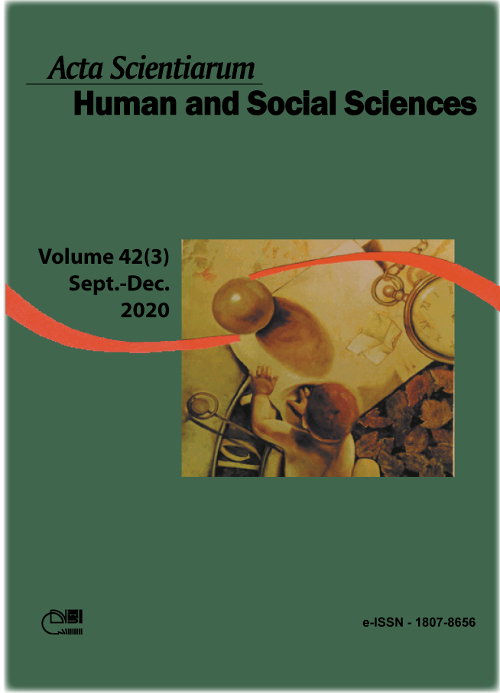Identidade pessoal: abordagem contrafactual do hábito psico-comportamental
Résumé
Neste artigo, procuro defender, baseado na Teoria Geral dos Sistemas e na Filosofia de Peirce, que a ‘identidade pessoal’ pode ser pensada como uma propriedade emergente do conjunto de hábitos de um agente incorporado e situado no mundo. Defendo, também, que o condicional contrafactual ‘Se fosse o caso que A, então seria o caso que B’ constitui forma lógica adequada para representar, ou modelar, a dinâmica de expressão do hábito psicocomportamental; o condicional contrafactual estaria implementado na estrutura psicocomportamental do agente como um arranjo de organização. Em artigos anteriores, trabalhei com a hipótese de que o hábito pudesse ser formalmente representado ou pela ‘implicação relevante ou por um condicional variavelmente estrito’. Este é o primeiro artigo que trabalho com a hipótese da representação do hábito como condicional contrafactual. A defesa do condicional contrafactual como forma lógica do hábito é feita em analogia com a dinâmica de manifestação das leis da natureza e dos condicionais biológicos.
Téléchargements
DECLARAÇÃO DE ORIGINALIDADE E DIREITOS AUTORAIS
Declaro que o presente artigo é original, não tendo sido submetido à publicação em qualquer outro periódico nacional ou internacional, quer seja em parte ou em sua totalidade.
Os direitos autorais pertencem exclusivamente aos autores. Os direitos de licenciamento utilizados pelo periódico é a licença Creative Commons Attribution 4.0 (CC BY 4.0): são permitidos o acompartilhamento (cópia e distribuição do material em qualqer meio ou formato) e adaptação (remix, transformação e criação de material a partir do conteúdo assim licenciado para quaisquer fins, inclusive comerciais.
Recomenda-se a leitura desse link para maiores informações sobre o tema: fornecimento de créditos e referências de forma correta, entre outros detalhes cruciais para uso adequado do material licenciado.


























